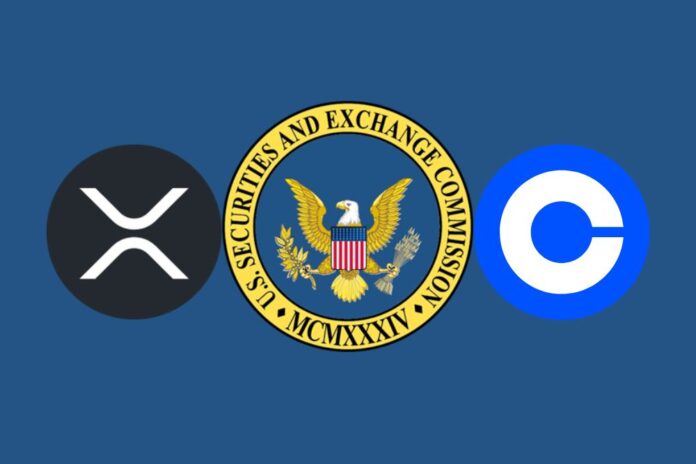Coinbase has filed a motion to dismiss a lawsuit filed by the Securities and Exchange Commission (SEC), arguing that the agency’s case is “an unprecedented stretch” and that the major questions doctrine applies.
The SEC filed its lawsuit against Coinbase in December 2022, alleging that the company violated securities laws by listing and trading certain digital assets. Coinbase has argued that the digital assets in question are not securities and that the SEC does not have the authority to regulate them.
Read Also: Analyst Highlights Four Developments That Would Send XRP Price Up To $10
In its motion to dismiss, Coinbase cited the recent Ripple Labs case, in which a judge ruled that some of Ripple’s sales of XRP did not violate securities laws. Coinbase argued that the Ripple case bolsters its argument that the digital assets in question are not securities.
Coinbase also argued that the major questions doctrine applies to its case. The major questions doctrine is a legal principle that says that federal agencies cannot regulate matters that have “vast economic and political significance” unless they have clear congressional authorization to do so.
Coinbase further argued that the SEC’s case falls under the major questions doctrine because it would have a “profound” impact on the crypto industry. The company also argued that the SEC does not have clear congressional authorization to regulate digital assets.
Cointed noted:
“In this case, by contrast, the SEC has charged Coinbase based solely on blind, bid-ask, spot exchange transactions—the very sort of transactions the Ripple court recently held as a matter of law were not investment contracts because the undisputed facts showed no relevant relationship between the parties to the sale,”
The SEC has not yet filed a response to Coinbase’s motion to dismiss. The case is being closely watched by the crypto industry, as it could have a major impact on the regulation of digital assets in the United States.
We are on twitter, follow us to connect with us :- @TimesTabloid1
— TimesTabloid (@TimesTabloid1) July 15, 2023
Read Also: Attorney John Deaton Discusses XRP Price and Impact of XRP-Powered ODL Adoption in Singapore
How Will Major Questions Doctrine Be Applied?
The major questions doctrine is a relatively new legal principle, and it is not entirely clear how it will be applied in the context of crypto regulation. However, Coinbase’s argument that the major questions doctrine applies to its case is a strong one, and it could have a significant impact on the SEC’s ability to regulate digital assets.
The major questions doctrine was first articulated by the Supreme Court in the 1984 case of Chevron U.S.A., Inc. v. Natural Resources Defense Council, Inc.
In that case, the Court held that federal agencies must defer to congressional intent when interpreting ambiguous statutes. However, the Court also held that agencies cannot regulate matters that have “vast economic and political significance” unless they have clear congressional authorization to do so.
Follow us on Twitter, Facebook, Telegram, and Google News



